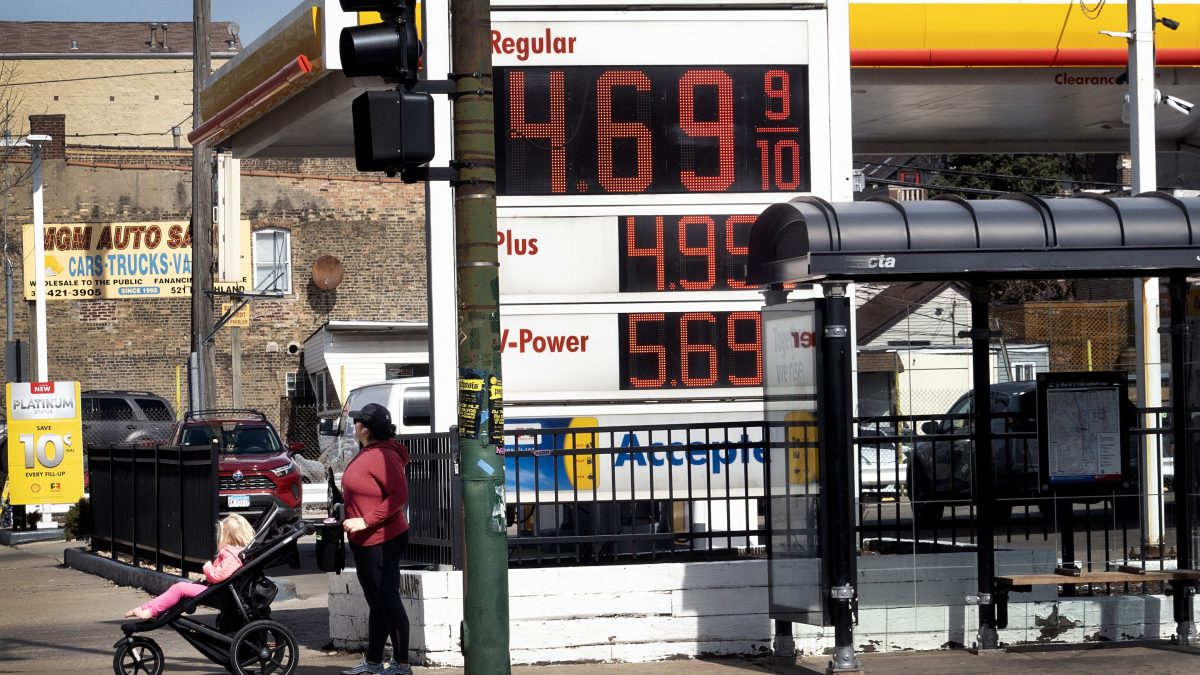Read More:
Distribution:
Gas prices have been on the rise across the globe, causing concern for consumers and businesses alike. The increase in fuel costs can be attributed to a variety of factors, including supply and demand dynamics, geopolitical tensions, and changes in global oil production.
Why gas prices are up
One of the main reasons for the spike in gas prices is the increase in demand as economies around the world continue to recover from the impact of the COVID-19 pandemic. As people return to work and travel picks up, the demand for fuel has surged, putting pressure on prices.
What it says about the global economy
The rising gas prices also highlight the interconnected nature of the global economy. Fluctuations in oil prices can have far-reaching effects on various industries, from transportation to manufacturing. As fuel costs go up, businesses may be forced to raise prices on their goods and services, leading to inflationary pressures.
Conclusion
In conclusion, the increase in gas prices is a reflection of the complexities of the global economy. It serves as a reminder of the importance of monitoring and understanding the various factors that can impact fuel costs. As we navigate through these uncertain times, it is essential for policymakers and businesses to adapt to the changing economic landscape and find ways to mitigate the impact of rising gas prices on consumers.
Gas prices have been on the rise across the globe, causing concern for consumers and businesses alike. The increase in fuel costs can be attributed to a variety of factors, including supply and demand dynamics, geopolitical tensions, and changes in global oil production.
Distribution:
Gas prices have been on the rise across the globe, causing concern for consumers and businesses alike. The increase in fuel costs can be attributed to a variety of factors, including supply and demand dynamics, geopolitical tensions, and changes in global oil production.
Why gas prices are up
One of the main reasons for the spike in gas prices is the increase in demand as economies around the world continue to recover from the impact of the COVID-19 pandemic. As people return to work and travel picks up, the demand for fuel has surged, putting pressure on prices.
What it says about the global economy
The rising gas prices also highlight the interconnected nature of the global economy. Fluctuations in oil prices can have far-reaching effects on various industries, from transportation to manufacturing. As fuel costs go up, businesses may be forced to raise prices on their goods and services, leading to inflationary pressures.
Conclusion
In conclusion, the increase in gas prices is a reflection of the complexities of the global economy. It serves as a reminder of the importance of monitoring and understanding the various factors that can impact fuel costs. As we navigate through these uncertain times, it is essential for policymakers and businesses to adapt to the changing economic landscape and find ways to mitigate the impact of rising gas prices on consumers.
One of the main reasons for the spike in gas prices is the increase in demand as economies around the world continue to recover from the impact of the COVID-19 pandemic. As people return to work and travel picks up, the demand for fuel has surged, putting pressure on prices.
Distribution:
Gas prices have been on the rise across the globe, causing concern for consumers and businesses alike. The increase in fuel costs can be attributed to a variety of factors, including supply and demand dynamics, geopolitical tensions, and changes in global oil production.
Why gas prices are up
One of the main reasons for the spike in gas prices is the increase in demand as economies around the world continue to recover from the impact of the COVID-19 pandemic. As people return to work and travel picks up, the demand for fuel has surged, putting pressure on prices.
What it says about the global economy
The rising gas prices also highlight the interconnected nature of the global economy. Fluctuations in oil prices can have far-reaching effects on various industries, from transportation to manufacturing. As fuel costs go up, businesses may be forced to raise prices on their goods and services, leading to inflationary pressures.
Conclusion
In conclusion, the increase in gas prices is a reflection of the complexities of the global economy. It serves as a reminder of the importance of monitoring and understanding the various factors that can impact fuel costs. As we navigate through these uncertain times, it is essential for policymakers and businesses to adapt to the changing economic landscape and find ways to mitigate the impact of rising gas prices on consumers.
The rising gas prices also highlight the interconnected nature of the global economy. Fluctuations in oil prices can have far-reaching effects on various industries, from transportation to manufacturing. As fuel costs go up, businesses may be forced to raise prices on their goods and services, leading to inflationary pressures.
Distribution:
Gas prices have been on the rise across the globe, causing concern for consumers and businesses alike. The increase in fuel costs can be attributed to a variety of factors, including supply and demand dynamics, geopolitical tensions, and changes in global oil production.
Why gas prices are up
One of the main reasons for the spike in gas prices is the increase in demand as economies around the world continue to recover from the impact of the COVID-19 pandemic. As people return to work and travel picks up, the demand for fuel has surged, putting pressure on prices.
What it says about the global economy
The rising gas prices also highlight the interconnected nature of the global economy. Fluctuations in oil prices can have far-reaching effects on various industries, from transportation to manufacturing. As fuel costs go up, businesses may be forced to raise prices on their goods and services, leading to inflationary pressures.
Conclusion
In conclusion, the increase in gas prices is a reflection of the complexities of the global economy. It serves as a reminder of the importance of monitoring and understanding the various factors that can impact fuel costs. As we navigate through these uncertain times, it is essential for policymakers and businesses to adapt to the changing economic landscape and find ways to mitigate the impact of rising gas prices on consumers.
In conclusion, the increase in gas prices is a reflection of the complexities of the global economy. It serves as a reminder of the importance of monitoring and understanding the various factors that can impact fuel costs. As we navigate through these uncertain times, it is essential for policymakers and businesses to adapt to the changing economic landscape and find ways to mitigate the impact of rising gas prices on consumers.

Read More:
- Sweeping public safety bill in D.C. aims to increase security, undoing past changes
- Get Ready for Enchanting Adventures in Season 4 with Witch Doctor
- Talk therapy shown to be effective in addressing psychological factors contributing to back pain
- Microsoft eliminates Android app integration on Windows 11
- Seven Years Later: Racing Game Enjoys Explosive Success on Steam Thanks to Epic Sale











+ There are no comments
Add yours